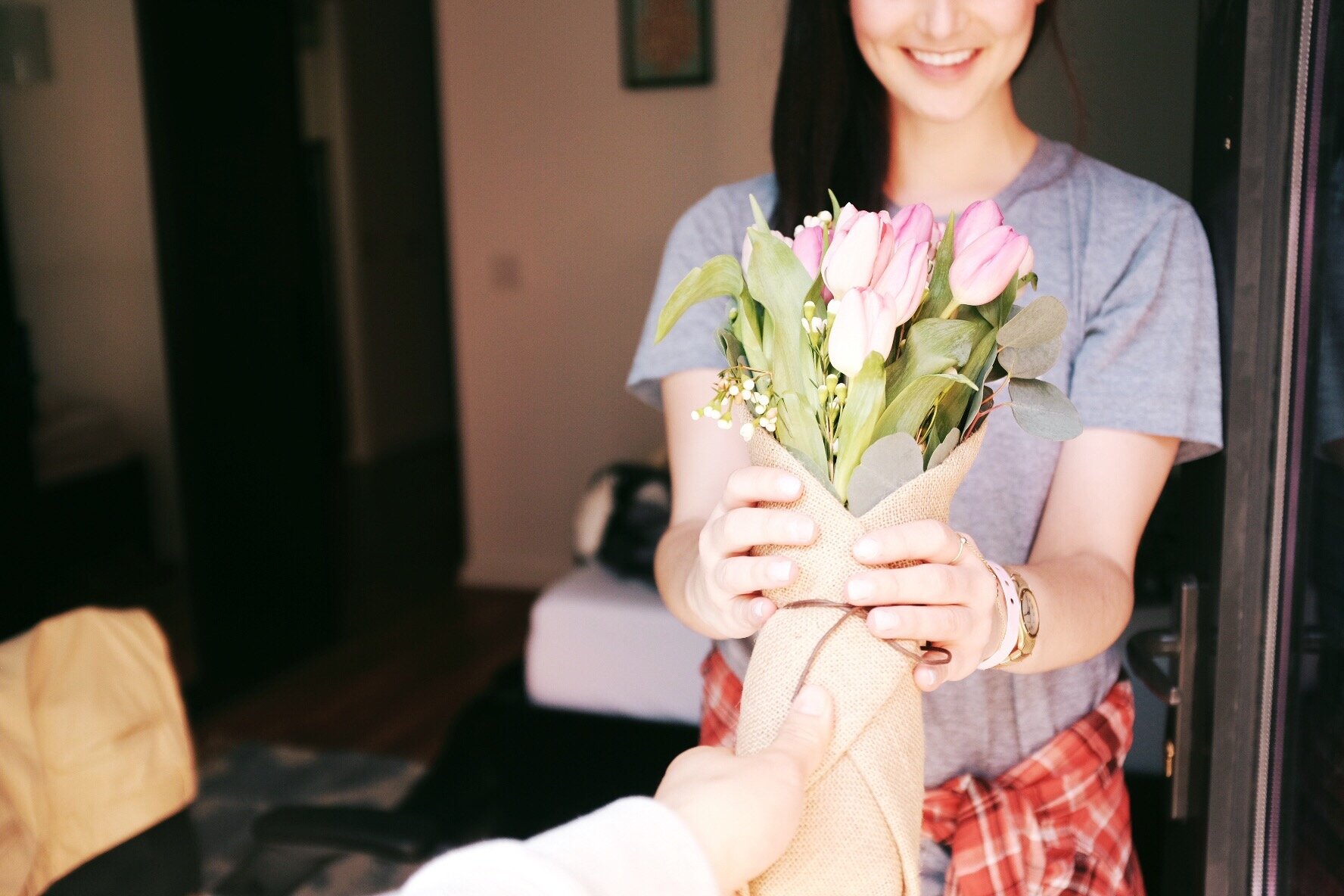What is First-World Privilege and How to Use it For Good
I’ve had the pleasure and the privilege to have lived in different countries in my life. The experience of being immersed into a culture that varies greatly from your own is something I highly suggest to anyone wanting to learn more about themselves and grow into a more aware human being.
From going to graduate school in Italy, doing residencies in Germany and The Czech Republic, and volunteering in Thailand, I have had the opportunity to begin to understand the subtleties that are embedded in the societies in which we live. Having been born in The United States of America with a father who was an immigrant, I grew up with what I consider to be an “in-between” entitlement.
Although I am half-Filipina, I look white enough and therefore have been given white privilege. My parents always provided for our family, keeping us comfortably inside of middle class and leaning closely to upper-middle class ideals thanks to wise money management.
However, it wasn’t until leaving the cushiness of the USA that I started to realize the depth of my privilege and entitlement. And it wasn’t until I came back to the states that I realized the downfall of too much privilege.
What is privilege?
Privilege is inherently designed to separate. Dictionary.com defines it as “a right, immunity, or benefit enjoyed by a particular person or a restricted group of people beyond the advantages of most,” meaning, privilege is not something that everyone receives.
Privilege is something that some are born into and others are not. Just the mere placement over a certain imaginary line can dictate whether or not you live in freedom or slavery. If you’re one of the lucky ones, it’s imperative to not allow privilege to turn into entitlement.
Due to the nature of privilege, it can be something easily taken for granted if you’re born into it. However, for those who have worked and sacrificed to become privileged—such as starting an idea from scratch and working obsessively to create a million dollar business or leaving a home country and family for more opportunity—they know the value of it.
Unfortunately, most Americans have been born into a life that creates minimal outside resistance. We don’t have to walk four miles to get potable water or take a bath in the local creek, no matter the temperature. We can access food whenever we want by walking (or more likely, driving in nice cars) to the local gas station or supermarket or any of the fast food restaurants that litter the streets of every other inhabited mile across America.
For the majority of Americans, we’ve managed to successfully lock down our bottommost survival needs (you can refer to Maslow’s Hierarchy of Needs to learn what these are). Even the fact that I can say the word “Americans” and the world will more or less assume I’m talking about people born in the United States of America is a telling point of where the power and privilege lie on a global level.
Why are we entitled?
When privilege is taken for granted, it becomes entitlement—the feeling that you have the right to do or have whatever you want, regardless if you deserve it or not. One of the common complaints from others about Americans is that we are entitled, and after living elsewhere, I would say this generalizing stereotype is quite accurate. I believe most first-world countries have levels of entitlement that their birth privilege creates.
There’s a big difference I noticed between America and poorer countries: the value of community. Italians and Thais live with a lot more focus on family and friends—this being an important pillar in their cultures. Adult children oftentimes still live with their parents well into their 30s. Whereas, Americans value individualism and independence more.
America, aka, Capitalism is run off of everyone wanting to do/be better, which is unsurprising since a majority of the nation’s money is spent on marketing that makes you believe that you are not enough. This has led us to become a country producing extraordinary levels of art, music, athletics, and innovation but also has left us with a lot of division.
The American style of (what I call) guerrilla warfare marketing (not to be confused with guerrilla marketing) constantly feeds our society ideas that more is better and we don’t have enough (beauty, money, power, fame, etc.), creating a scarcity mindset.
With scarcity and capitalism, competition thrives, and so does the “every man for himself” motto. This coupled with privilege and entitlement creates a narcissistic lens in which to view the world, a lens of separation, rather than connection.
The importance of connection has decreased as technology has grown. Now people can order food, buy groceries, watch a movie, or get a college degree without actually interacting with anyone in person. Letters and phone calls have denigrated into text messages and double taps on social media.
So what can we do about it?
Appreciation and allocation
Ultimately, it comes down to gratitude. Are you grateful for the things you have or do you take them for granted? Do you expect to be given things even if you don’t work for them?
To tell you the truth, I have been incredibly entitled in my life thus far. I have been blessed with many opportunities, but I also have the curse of privilege; I have expected things to come to me just because I wanted them, even if I hadn’t worked for them.
For example, I have allowed the damsel-in-distress narrative to infiltrate my thoughts, hoping someone would come along and save me so that I didn’t have to do the work. I have also been prey to thoughts of thinking I could get something because I was pretty or because I knew someone important or because “I deserve it.”
If we all take a good look at our society, we can see many case examples of this. The “Get Rich Quick” scheme proliferates itself in bookstores and online blogs, selling us an idea that we don’t need to work very hard. While I do believe there’s a level of accepting the blessings the universe offers us with ease and grace, there is also something to be said for doing the footwork to receive said blessings.
By appreciating what we have, we are sending out and living at a frequency of gratitude. I don’t know about you, but I find those types of people to be infectious and highly attractive. There’s a sense of calm and peace inside the person who works hard and is grateful for everything they have.
Staying vigilant about not allowing privilege to fall into entitlement, you can actually start to use your privilege for good. Rather than wanting everything for yourself because you think you need it all, you can start to give away your excess. Of course, don’t go overboard and give what you need for yourself (I learned this the hard way), but rather, give from your overflow.
Create a life of abundance by living below your means. Save your money, value your time. And donate your time or money to those who aren’t gifted with the same level of privilege.
Privilege doesn’t need to be a bad thing. It can be leveraged to create more good in the world. By remaining conscious and aware—not numbing out with drugs or alcohol, TV, food, or anything addictive—you open yourself up to recognizing that there’s good you can do in the world. Rather than passively donating to a charity, go visit it and see what your money is doing to benefit them. This may also inspire you to give more from your overflow.
Becoming an active participant in groups and foundations will strengthen your connection to humanity, which is something we are all wired for.
Assessing your values
The truth is that if you live in America or any other first-world country, you are privileged. The fact that we can classify countries into tiers of first, second, or third means there’s a displacement of resources and privilege.
Ironically, I don’t think the first-world countries are so much better off than second or third world countries, mentally speaking. The brain is designed to find problems and create solutions, so without pressing survival problems, our minds create other challenges for ourselves, including, addiction, mental illness, resentment, and loneliness.
By assessing our situation and turning outside of ourselves, by extending what we have to others we become more abundant and happier. The trick is to stop playing the game. More is not always better, no matter how many TV commercials and Instagram ads tell you otherwise.
Remember that we appreciate the things we value. What are your values? Do you value a brand new car more than donating to an organization that is fighting for women’s rights? Do you care more about looking good on social media or actually doing good in the world?
Educating yourself about and acting on different ways you can help others will give you a sense of purpose and appreciation for what you have.
And remember, it is a privilege to be able to help others.





